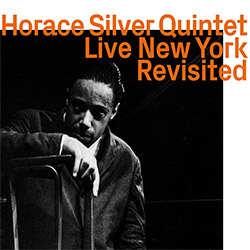
Recorded around the time of his most famous records, Song For My Father and The Cape Verdean Blues, lyrical hard bop/Blue Note pianist and composer Horace Silver's band is heard live at The Half Note in NYC and at "The Cork & Bib" on Long Island with his spectacular band including trumpeters Carmell Jones & Woody Shaw and saxophonist Joe Henderson.
In Stock
Quantity in Basket: None
Log In to use our Wish List
Shipping Weight: 3.00 units
EU & UK Customers:
Discogs.com can handle your VAT payments
So please order through Discogs
Sample The Album:
Carmell Jones-trumpet
Woody Shaw-trumpet
Joe Henderson-tenor saxophone
Horace Silver-piano
Teddy Smith-double bass
Larry Ridley-double bass
Roger Humphries-drums
Click an artist name above to see in-stock items for that artist.
UPC: 752156113720
Label: ezz-thetics by Hat Hut Records Ltd
Catalog ID: ezz-thetics 1137
Squidco Product Code: 32400
Format: CD
Condition: New
Released: 2022
Country: Switzerland
Packaging: Cardboard Gatefold
Tracks 1-5 recorded at The Half Note, in New York, New york, on April 18th, 1965, and February 11th and 16th, 1966. Tracks 6 and 7 recorded at the "Cork and Bib" nightclub, in Westbury, Long Island, New York , on June 6th, 1964.
"Call together twelve fans or critics - that's a properly constituted jury in some countries, though not mine - and ask them to write down the ten most important jazz musicians since, say, 1940. We can all agree on at least some of the names that would figure prominently, but how many will make a strong case for Horace Silver? Long before his death in 2014, Silver's reputation had become occluded, or tarnished with the notion that he was a relatively slight figure, more of an entertainer than an innovator.
As we head for a decade since his passing, that's a situation and a view well worth challenging. Silver must stand as one of the most significant figures not just in jazz but in modern music. He was, of course, a commercial and critical cornerstone of Blue Note, perhaps the definitive modern jazz label. He was a pioneer of the style known as hard bop and of the distinctive instrumentation that best expressed it. He moved jazz piano on beyond the prevailing Bud Powell style, weaving in rhythms from his Cape Verdean heritage previously unheard in north American music. He was a formidable composer: this, very few are prepared to deny, citing "Song For My Father", heard in wonderful live form on the disc you're holding, "Peace", the other famous "Lonely Woman" and a dozen more that have entered the repertory. But it doesn't stop there. Silver later tried to build new bridges between jazz and the popular music that had displaced it. His United States Of Mind projects were not a success, but they deserve to be revisited. His spirituality and environmentalism were ahead of their time. His habit of quoting other songs in his solos, often dismissed as a shallow, crowd-pleasing trick, is a forerunner of sampling culture and hip-hop. It's also an acknowledgement of profoundly knowledgeable Silver was about the canon and its evolution. Here's a line of mine, he might say, and here's where it came from, but also here and here. His only mistake in this regard was to smile while he was playing. Silver's other great contribution was a challenge to the really rather recent notion that jazz should be deadly serious and played with a pained rictus.
Only listening to him at some length will confirm any of these hasty generalisations, but here is a chance to discover him at the peak of his performing career. Between 1962 and 1964, Silver made eye- and ear-opening visits to Japan and to Brazil. Though he never attempted anything that could be marketed as "world music", he came to the recognition that jazz was a world music, a creative Esperanto that could absorb different accents and dialects. His own creole nature, Irish, African, Portuguese, became the focus of his writing. Travel made a profound impact on his own practice and led, quite directly, to the making of his two most important LPs, Song For My Father, released in late January 1965, and The Cape Verdean Blues, exactly one year later. These records, the former especially, account for much of the repertoire Silver was playing with his group at the time.
In June 1964, with some of Song For My Father in the can, Silver's group was at the "The Cork & Bib" in Westbury, Long Island, New York. It was a relatively new line-up. Blue Mitchell and Junior Cook had left and were replaced by Carmell Jones and Joe Henderson, a change that either reflected or inspired a change of direction and tone in the leader's music. "Tokyo Blues" and "Señor Blues", were still mainstays of the set. Somewhat like Miles Davis, Horace didn't see the merit of live releases and he probably wouldn't have thanked you for a copy of Live 1964, which saw release twenty years later, when Horace was absorbed in his own label and the self-help imperatives of his Spiritualizing The Senses project. He might have found his own earlier music to be raw and unsophisticated, except the 1964 band was fronted by two soloists who were virtually incapable of unsubtle playing. The enigmatic Carmell Jones left the US for Germany right after his stint with Silver and was, for a time, "lost" to American jazz. Joe Henderson had already made a splash with his early Blue Notes, Page One, Our Thing, In'n'Out and the driving Inner Urge was establishing himself as a player who always seemed to be in the middle of an absorbing solo, like a storyteller who picked up the narrative every time you encountered him.
Less than a year further on, Silver and the group were playing mostly material off Song For My Father, a record which, partly because of its affectionate, late-sunshine cover portrait of the dedicatee, had established the idea that jazz could make such fond personal statements and still swing. The band's appearance at The Half Note, in April 1965 perfoming Song Of My Father, The Natives Are Restless Tonight and Que Pasa and on February 11 & 16, 1966, two versions of "African Queen" are also included on this Revisited release. Almost sixty years on, and with the piano lid now closed, it's possible to see all the work as of a piece and a process of evolution. At no point, though, was Silver more completely on point and exuberantly creative as in the period documented here. There is far more to the Silver story than these live performances, but they stand on their own terms as gently chiding reminders of Silver's role in jazz history. If the jury really is still out, this reissue should provide the clinching evidence."-Brian Morton, July 2022
Artist Biographies
• Show Bio for Joe Henderson "Joe Henderson (April 24, 1937 - June 30, 2001) was an American tenor saxophonist whose fluid phrasing, rich tone, and innovative improvisational style made him one of the most distinctive voices in post-bop jazz. Born in Lima, Ohio, Henderson studied music at Kentucky State College and Wayne State University before serving in the U.S. Army, where he played in military bands. Upon moving to New York City in the early 1960s, he quickly became a sought-after sideman and a vital contributor to the Blue Note Records scene. Henderson's breakthrough came with his 1963 debut album Page One, which featured trumpeter Kenny Dorham and included the jazz standard "Recorda Me." During the 1960s, he recorded prolifically as both a leader and a sideman, appearing on seminal albums like Horace Silver's Song for My Father, Lee Morgan's The Sidewinder, and Andrew Hill's Point of Departure. His playing combined technical mastery with adventurous harmonic ideas and rhythmic flexibility, balancing soulful expressiveness with intellectual rigor. In the 1970s, Henderson explored more avant-garde, fusion, and world music elements, while also delving into solo and duo formats. His later career saw a resurgence of recognition, particularly with his acclaimed 1990s Verve recordings, including Lush Life: The Music of Billy Strayhorn, which won a Grammy Award and brought his artistry to a new generation of listeners. Throughout his four-decade career, Henderson remained a deeply respected figure in jazz, known for his thoughtful compositions, signature tone, and ability to adapt across styles without ever compromising his musical identity. His legacy continues to inspire saxophonists and improvisers around the world." ^ Hide Bio for Joe Henderson • Show Bio for Horace Silver "Horace Ward Martin Tavares Silver[note 1] (September 2, 1928 - June 18, 2014) was an American jazz pianist, composer, and arranger, particularly in the hard bop style that he helped pioneer in the 1950s. After playing tenor saxophone and piano at school in Connecticut, Silver got his break on piano when his trio was recruited by Stan Getz in 1950. Silver soon moved to New York City, where he developed a reputation as a composer and for his bluesy playing. Frequent sideman recordings in the mid-1950s helped further, but it was his work with the Jazz Messengers, co-led by Art Blakey, that brought both his writing and playing most attention. Their Horace Silver and the Jazz Messengers album contained Silver's first hit, "The Preacher". After leaving Blakey in 1956, Silver formed his own quintet, with what became the standard small group line-up of tenor saxophone, trumpet, piano, bass, and drums. Their public performances and frequent recordings for Blue Note Records increased Silver's popularity, even through changes of personnel. His most successful album was Song for My Father, made with two iterations of the quintet in 1963 and 1964. Several changes occurred in the early 1970s: Silver disbanded his group to spend more time with his wife and to concentrate on composing; he included lyrics in his recordings; and his interest in spiritualism developed. The last two of these were often combined, resulting in commercially unsuccessful releases such as The United States of Mind series. Silver left Blue Note after 28 years, founded his own record label, and scaled back his touring in the 1980s, relying in part on royalties from his compositions for income. In 1993, he returned to major record labels, releasing five albums before gradually withdrawing from public view because of health problems. As a player, Silver transitioned from bebop to hard bop by stressing melody rather than complex harmony, and combined clean and often humorous right-hand lines with darker notes and chords in a near-perpetual left-hand rumble. His compositions similarly emphasized catchy melodies, but often also contained dissonant harmonies. Many of his varied repertoire of songs, including "Doodlin'", "Peace", and "Sister Sadie", became jazz standards that are still widely played. His considerable legacy encompasses his influence on other pianists and composers, and the development of young jazz talents who appeared in his bands over the course of four decades." ^ Hide Bio for Horace Silver
Have a better biography or biography source? Please Contact Us so that we can update this biography.
7/1/2025
Have a better biography or biography source? Please Contact Us so that we can update this biography.
Track Listing:
1. Song For My Father 10:34
2. African Queen 9:00
3. The Natives Are Restless Tonight 11:25
4. Que Pasa 14:55
5. African Queen 10:12
6. The Tokyo Blues 14:59
7. Senor Blues 6:36
Hat Art
Improvised Music
Jazz
Free Improvisation
NY Downtown & Metropolitan Jazz/Improv
Quintet Recordings
Jazz Reissues
Staff Picks & Recommended Items
New in Improvised Music
Search for other titles on the label:
ezz-thetics by Hat Hut Records Ltd.


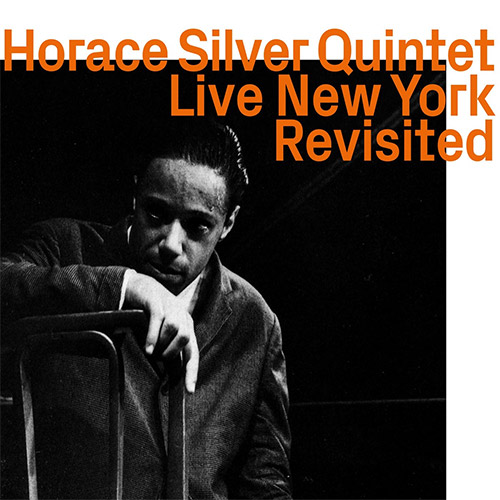
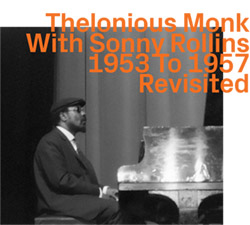
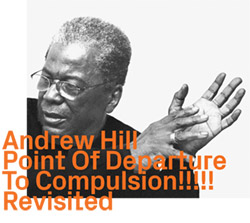

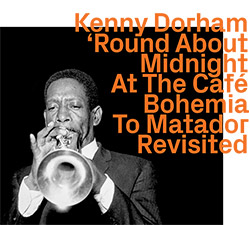
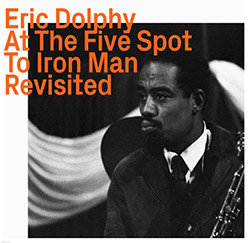
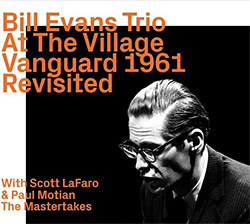
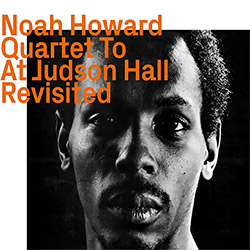
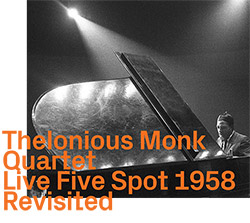
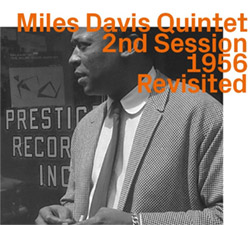

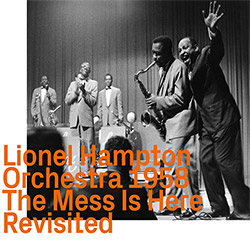
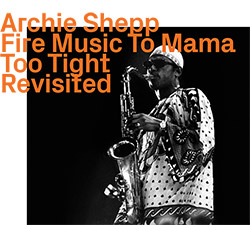
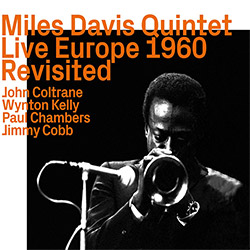
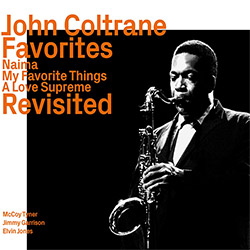






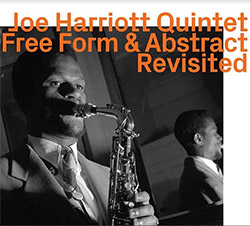

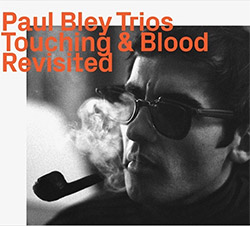
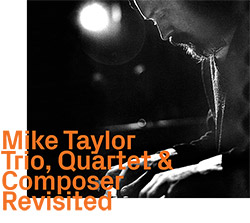
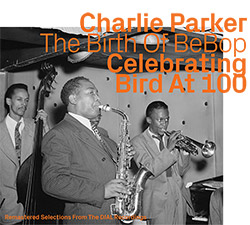
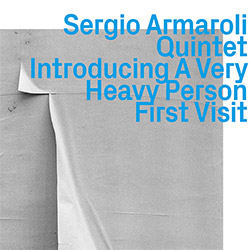










![Deupree, Jerome / Sylvie Courvoisier / Lester St. Louis / Joe Morris: Canyon [2 CDs]](https://www.teuthida.com/productImages/misc4/36404.jpg)


![Eternities: Rides Again [CASSETTE]](https://www.teuthida.com/productImages/misc4/36247.jpg)

![Lopez, Francisco: Untitled (2021-2022) [2 CDs]](https://www.teuthida.com/productImages/misc4/36438.jpg)




![Eventless Plot | Haarvol: The Subliminal Paths [CASSETTE + DOWNLOAD]](https://www.teuthida.com/productImages/misc4/36232.jpg)












![Eventless Plot | Francesco Covarino: Methexis [CASSETTE + DOWNLOAD]](https://www.teuthida.com/productImages/misc4/36231.jpg)



![Das B (Mazen Kerbaj / Mike Majkowski / Magda Mayas / Tony Buck): Love [VINYL]](https://www.teuthida.com/productImages/misc4/36329.jpg)



![Hemphill Stringtet, The: Plays the Music of Julius Hemphill [VINYL]](https://www.teuthida.com/productImages/misc4/36409.jpg)



![Halvorson, Mary Septet: Illusionary Sea [2 LPS]](https://www.teuthida.com/productImages/misc4/17952.jpg)






![Money : Money 2 [2 CDs]](https://www.teuthida.com/productImages/misc4/35894.jpg)




![Klinga, Erik: Elusive Shimmer [VINYL]](https://www.teuthida.com/productImages/misc4/36258.jpg)
![CHANGES TO blind (Phil Zampino): Volume 9 - I Wave on a Fine Vile Mist [CD + DOWNLOAD]](https://www.teuthida.com/productImages/misc4/36061.jpg)

![Wallmart / Rubbish: Asset Protection [split CD]](https://www.teuthida.com/productImages/misc4/35900.jpg)


![+Dog+: The Family Music Book Vol. 5 [2 CDs]](https://www.teuthida.com/productImages/misc4/35897.jpg)
![Kuvveti, Deli : Kuslar Soyledi [CASSETTE w/ DOWNLOAD]](https://www.teuthida.com/productImages/misc4/36107.jpg)

![Nakayama, Tetsuya: Edo Wan [CASSETTE w/ DOWNLOAD]](https://www.teuthida.com/productImages/misc4/36105.jpg)




![Yiyuan, Liang / Li Daiguo: Sonic Talismans [VINYL]](https://www.teuthida.com/productImages/misc4/35957.jpg)
![Brown, Dan / Dan Reynolds: Live At The Grange Hall [unauthorized][CASSETTE]](https://www.teuthida.com/productImages/misc4/36245.jpg)








![Palestine, Charlemagne / Seppe Gebruers: Beyondddddd The Notessssss [VINYL]](https://www.teuthida.com/productImages/misc4/36206.jpg)
![Palestine, Charlemagne / Seppe Gebruers: Beyondddddd The Notessssss [NEON GREEN VINYL]](https://www.teuthida.com/productImages/misc4/36207.jpg)

![Laubrock, Ingrid: Purposing The Air [2 CDs]](https://www.teuthida.com/productImages/misc4/35639.jpg)

![Yoko, Ono / The Great Learning Orchestra: Selected Recordings From Grapefruit [2 CDs]](https://www.teuthida.com/productImages/misc4/35841.jpg)









![Zorn, John / JACK Quartet: The Complete String Quartets [2 CDs]](https://www.teuthida.com/productImages/misc4/35609.jpg)

![Lonsdale, Eden: Dawnings [2 CDs]](https://www.teuthida.com/productImages/misc4/35480.jpg)



![Sorry For Laughing (G. Whitlow / M. Bates / Dave-Id / E. Ka-Spel): Rain Flowers [2 CDS]](https://www.teuthida.com/productImages/misc4/35985.jpg)

![Rolando, Tommaso / Andy Moor : Biscotti [CASSETTE w/ DOWNLOADS]](https://www.teuthida.com/productImages/misc4/36106.jpg)


![Electric Bird Noise / Derek Roddy: 8-10-22 [CD EP]](https://www.teuthida.com/productImages/misc4/35970.jpg)








![Elephant9 : Mythical River [VINYL]](https://www.teuthida.com/productImages/misc4/34624.jpg)



![Elephant9 with Terje Rypdal: Catching Fire [VINYL 2 LPs]](https://www.teuthida.com/productImages/misc4/35355.jpg)
![Deerlady (Obomsawin, Mali / Magdalena Abrego): Greatest Hits [VINYL]](https://www.teuthida.com/productImages/misc4/34876.jpg)







![Surplus 1980: Illusion of Consistency [CD]](https://www.teuthida.com/productImages/misc4/35069.jpg)
![Staiano, Moe: Away Towards the Light [VINYL + DOWNLOAD]](https://www.teuthida.com/productImages/misc4/35037.jpg)
![Coley, Byron: Dating Tips for Touring Bands [VINYL]](https://www.teuthida.com/productImages/misc4/17906.jpg)

![Lost Kisses: My Life is Sad & Funny [DVD]](https://www.teuthida.com/productImages/misc4/lostKissesDVD.jpg)